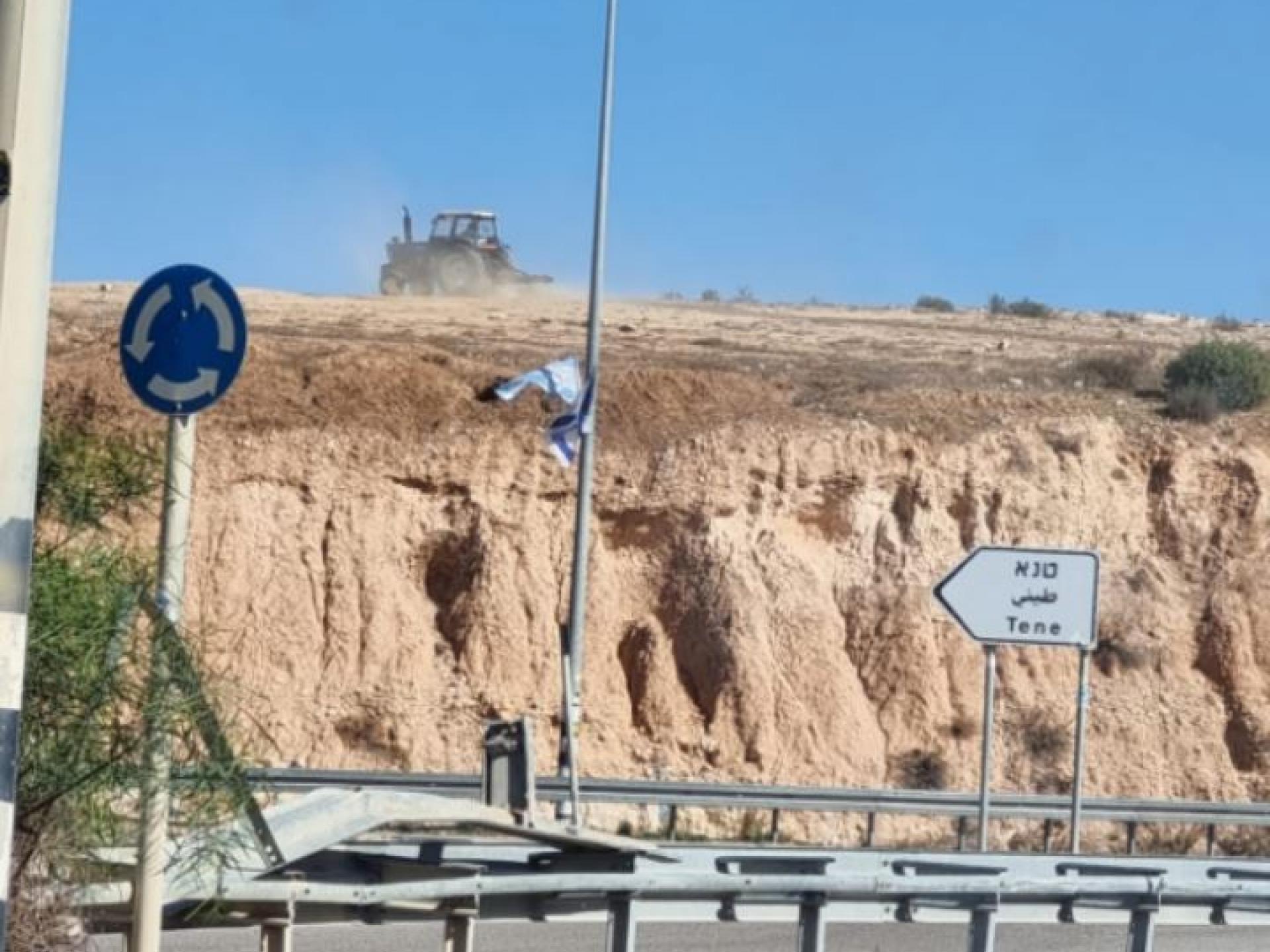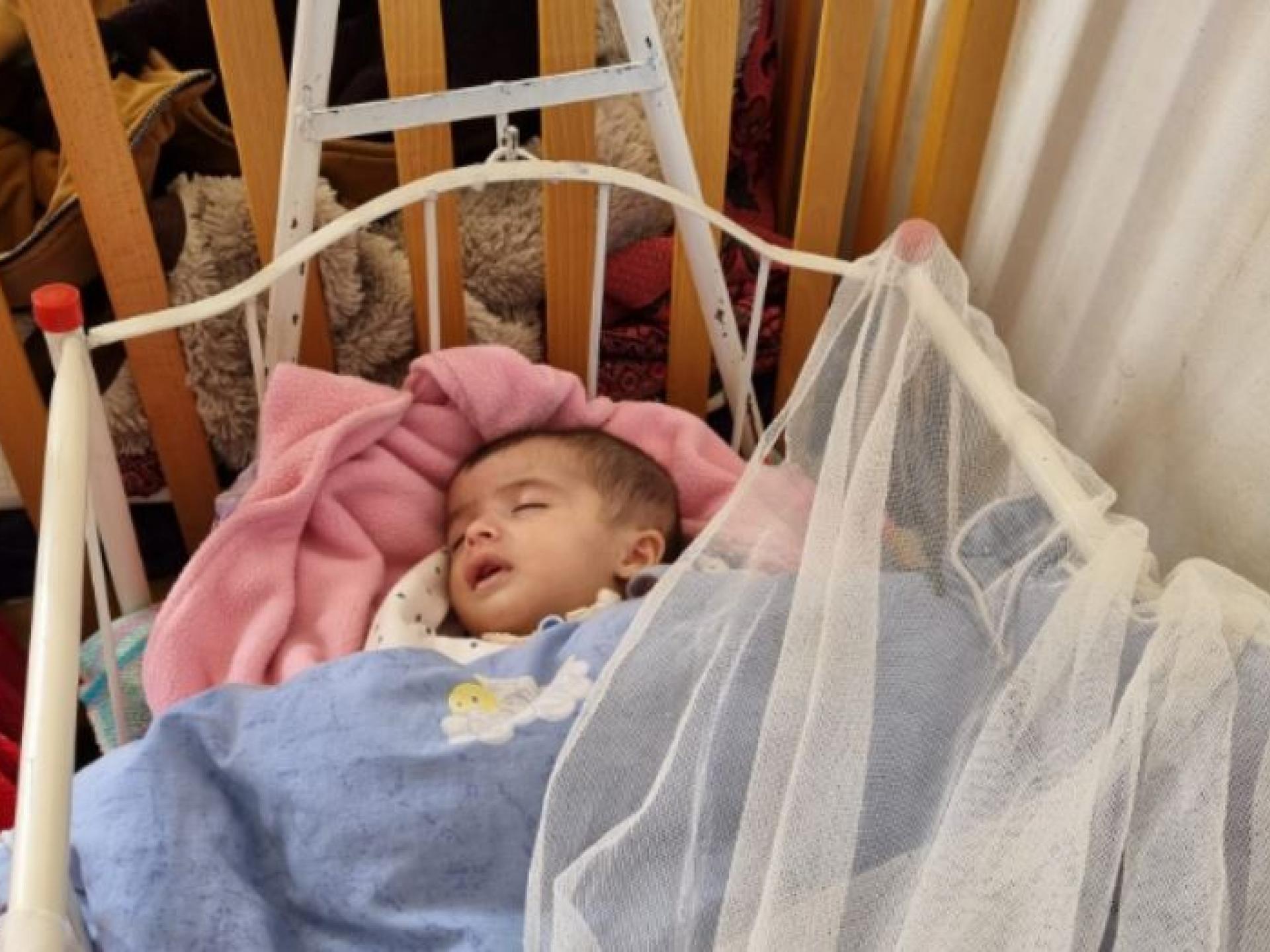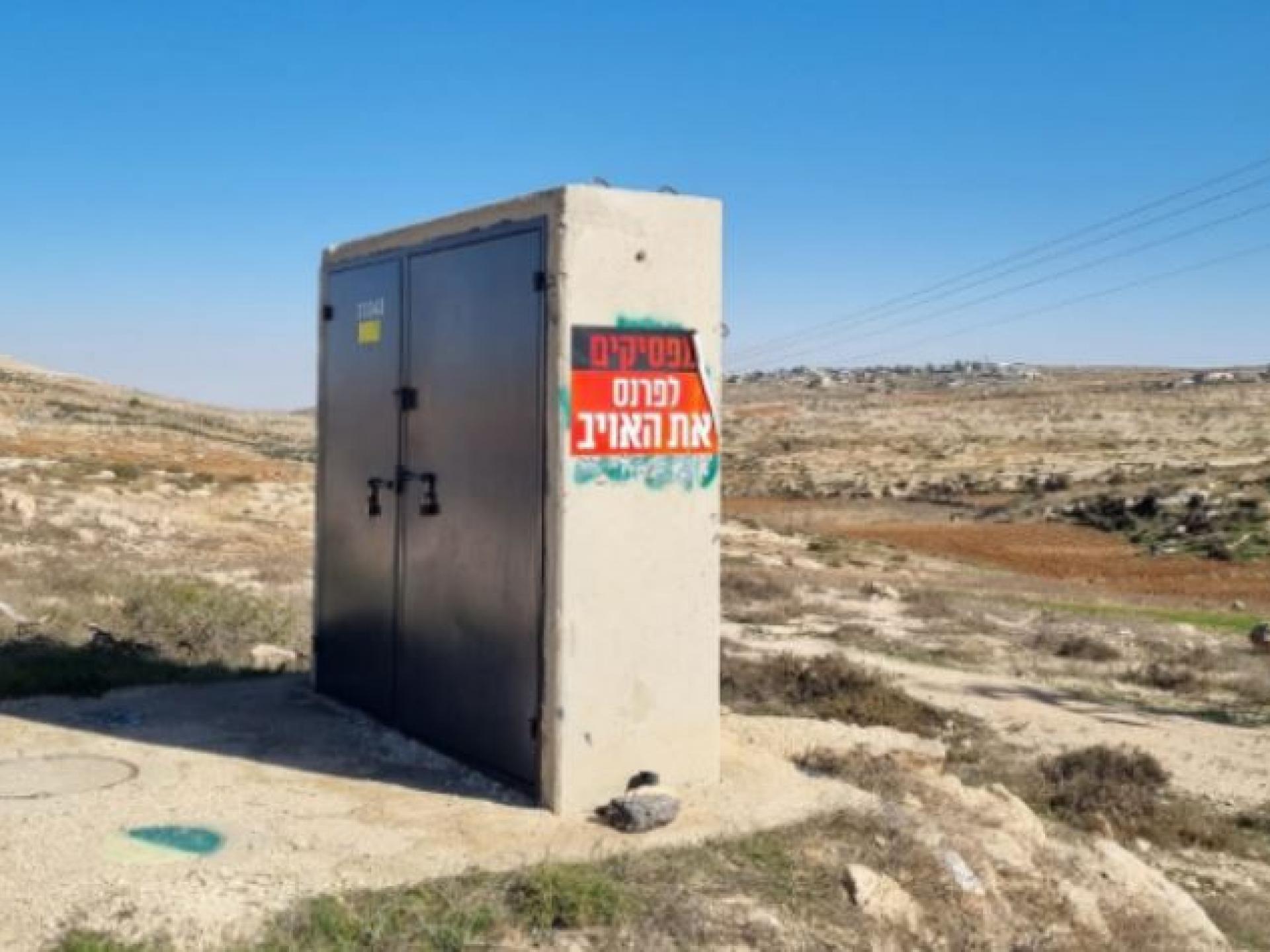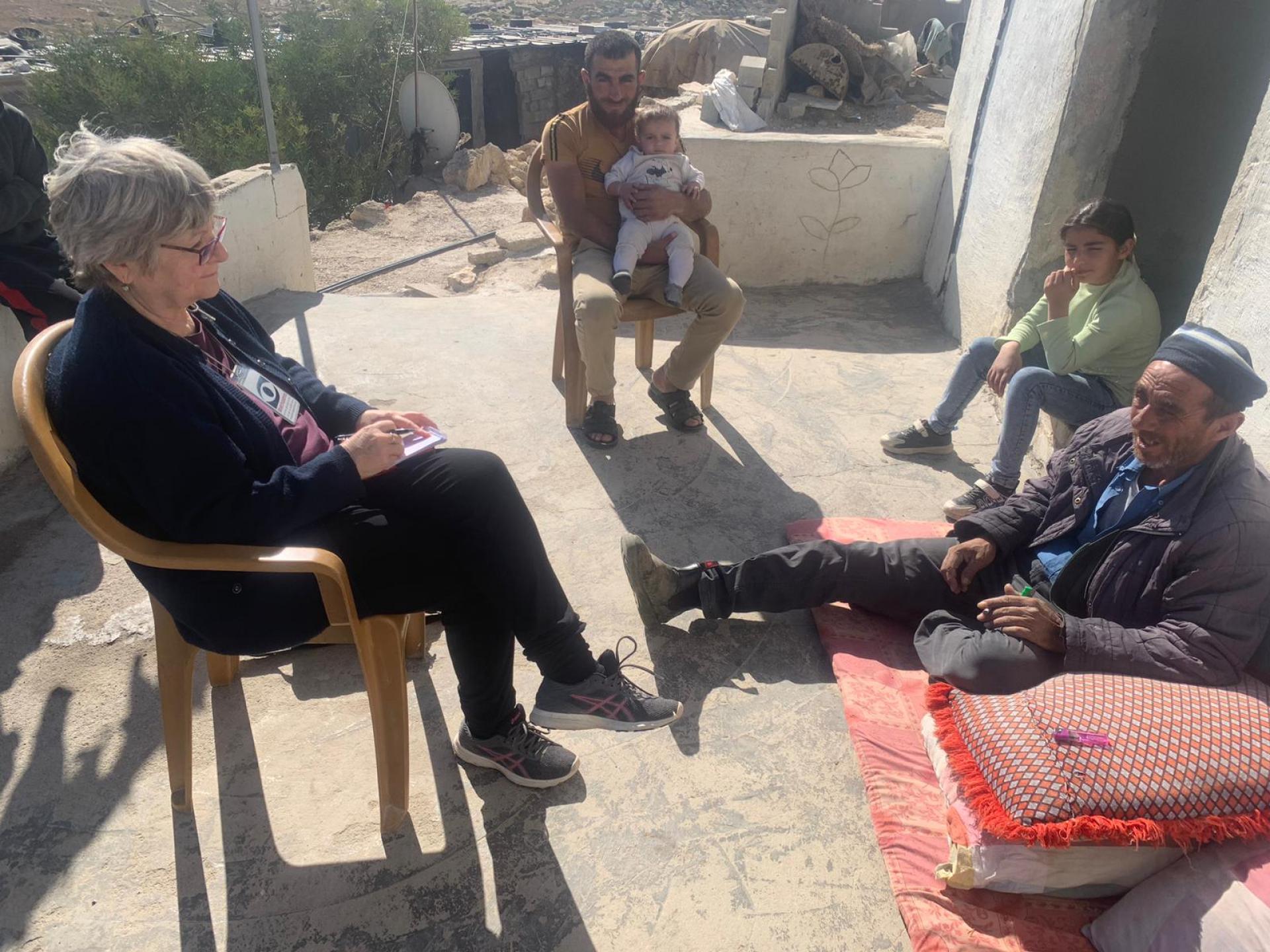South Hebron Hills - the occupation is visible everywhere
At the Meitar barrier near the empty parking lot, a Palestinian is ploughing his land. Opposite on Route 60 is parked a military jeep with a soldier in it. Is there a connection between the 2 things? Probably not.
We passed by Zanuta, the village from which about 250 villagers were expelled. Cultivated areas. You can notice the budding of wheat or barley. According to Muhammad (Faris already informed him), that settlers took ownership, and they were the ones who sowed.
Zanuta's school, which used to serve as an example, and with beautiful paintings decorating its walls, is burned. It's hard to see.
A sticker with the words "stop supporting the enemy" on the side of the road near Qawawis near Sha'ab al Batum.
About 100 meters before the entrance to At-Tuwani, on the left side, there is a van with several soldiers in it. They block the entrance to El Carmel with stones. They notice us and ask us to stop at the entrance to At-Tuwani. Four reservists, dressed from head to toe in all possible equipment, ask where we are going. Muhammad and I replied: "At-Tuwani." One of them informs us that it is a fire zone and we are not allowed to enter. I tell him, we have friends here and we are allowed to enter.
For some reason, as I told him this, he said: "Well done" (with disdain) and we continued on our way. The destination was Mufaqara. We drove through At-Tuwani because the entrance next to the Avigayil settlement is blocked. We brought baby carriage and clothes.
carriage and clothes.
The young children who were supposed to go to school are at home. Fadel is afraid of what the settlers from Abigayil and Havat Ma'on, who pass by several times a day, might do to the children.
3 and a half months ago two twin granddaughters were born to Fadel, the daughters of his son. One of them, Talin, was born with a deformity that requires a breathing tube that is attached to her throat. The cost of the device is NIS 9,500, which makes it very difficult for the family.
Fadel says that he goes down to his territory near Avigayil, but every time the settler from the new outpost (originally from the bus farm), drives him away.
The best thing is to plough to the east where the settler does not get to.
They buy groceries once a week in in Yatta. They are not always allowed to enter. Abdu, the son, says that a week ago, he came back from Yatta riding the donkey with groceries for the family and the army stopped him at the exit from Al karmil and he had to wait for hours, until they left the checkpoint.
They have about 70 head of sheep. Since it is not possible to feed them from what they grew in the past, they buy sacks of barley. The price of the bag is NIS 75, which is enough for one day.
During our visit, we could hear the pounding of hammers and an ATV driving back and forth from the direction of the outpost that was established a few months ago. It can also be seen from the other side, from the house of Laila and Muhammad from Sha'ab al Butum. The place is developing rapidly.
In the distance we notice Nasser Adra's car, which transports the students of the villages back and forth to the school in At-Tuwani, in the morning and in the afternoon. We continue to At-Tuwani to meet Basel Adra.
On our way again we see four nearby outposts to the east of Ma'on Farm. Abu Hummus, the well-known activist from Isawiya, East Jerusalem, visits Bassel. The threat of a deportation order hangs over his head. With him came other activists we know who brought food packages to distribute in the area.
On the way back on Route 60, we saw two bulldozers working on leveling a road near Shabtai Farm (near the Tene Omarim settlement).
The occupation is visible everywhere.




